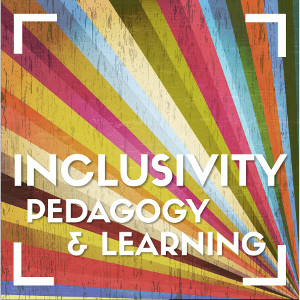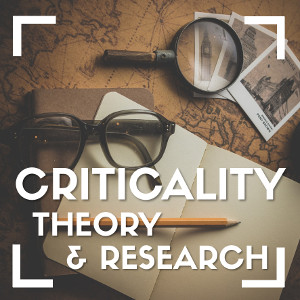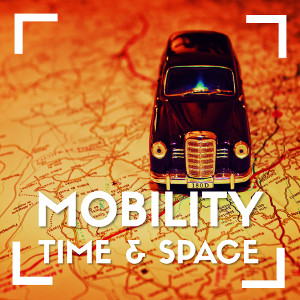Centre for Technology Enhanced Learning Research Themes

Inclusivity, pedagogy and learning
We are interested in how educational uses of technology can change practices to become more inclusive. Introducing technology into practice is often argued to be disruptive: where established practices are discarded, innovative forms of learning are fostered and so new opportunities are created for the previously disempowered to participate and empower themselves. That disruption of established practice might be seen to arise, for example, by enabling new ways of communication between people; by making more accessible a range of resources; and through the provision of enriched forms of information representation—video, image, sound and text, or ‘multimodal’ combinations. We wish to investigate the reality of those claims—understanding how practices actually change where technology is introduced, which properties of technology provide the bases for the disruption of particular practices, how power relations are transformed or persist, what opportunities can be created to empower the marginalised, and the range of outcomes that might be typical and possible.
Our work on inclusivity, pedagogy and learning investigates issues like:
- How do disabled children and young people use digital technologies for learning?
- How can the development of digital, multi- and visual literacies empower the disadvantaged?
- How can digital technologies assist teachers to support marginalised learners?
- How can the use of simulation and gamification mechanisms foster learner motivation?
- How can multimodal and pictorial resources support more holistic interpretations and understandings of concepts—and how can we utilise such resources to support more multi-voiced academic discussions?
- How can we design settings and learning scenarios in ways that are inclusive of a wider range of stakeholders?
- On what grounds do we understand online distance education as ‘accessible’ and ‘inclusive’, and what are the realities?
- How can we understand learning and support pedagogy in international distance education in the context of a post-colonial world?

Criticality, theory and research
We are enthusiastic about technology enhanced learning, but we are also critical. We want to improve learning using technology, but we understand that there is no single or direct relationship between technology, learning and education. We recognise the need to theorise the complex role of technology in educational practices. That if we want to change learning and education using technology, we must account for theories of learning, education, and institutional change. That if we want to change the world by improving education, we must account for the wider nature of that world: sociologically, politically, historically, and economically. That we must develop disparate visions of technology enhanced learning that learn from, further develop, and speak back to other disciplines—so understanding the nuances of educational phenomena from a range of perspectives. That theorising technology enhanced learning and engaging with academic fields is a necessary precursor to empirical advancement and the changing of real-world practice.
Our work on criticality, theory and research investigates issues like:
- How can we characterise practices of learning using technology, taking into account that 'learning' is a term describing a range of processes?
- How can we theorise the roles of technology in different forms of educational practice?
- To what extent do academic learning theories influence or diverge from educational practice?
- What does it mean to support 'critical pedagogy' in a connected world and a globalised economy?
- How can we theorise the roles of technology in learning as foregrounding more than the verbal and the written?
- What does it mean for humans to 'collaboratively' learn using technology?
- What do we mean by 'innovation' and 'creativity' in technology enhanced learning?
- How can we theorise the 'visual' and the 'multimodal' in technology enhanced learning, and foreground those issues in research methodology?

Mobility, time and space
In recent years the settings in which education occurs have become more varied and less predictable. Online technologies connect learners across great distances and link them with those back home when they travel. The use of communication technologies can change the pace and timing of educational interactions: whether enabling bursts of informal communication, slower and more reflective responses, or the sending of messages at unconventional but convenient moments. The physical environments of education are infused with personal technologies and ubiquitous information, so even how people communicate face-to-face can be re-shaped. Those developments require a deeper understanding of the physical and temporal nature of education in a digital age. We wish to better understand the roles of physical location in learning, including in online distance education; how technology supports people during difficult transitions in their lives; how people integrate and separate the time spent engaging with formal programmes with their other professional and personal commitments; and how institutions provide spaces that support new forms of education. In short we focus on how people appropriate and combine the different spaces, times and technologies of their lives to accomplish their objectives.
Our work on mobility, time and space investigates issues like:
- How can we understand learning, education and development as dialectically related to mobility, time and space?
- How might we support education across the spaces provided by technology including the physical, the digital and the augmented?
- How can technology offer particular support to international students and others in unfamiliar locations?
- How can we understand the role of time in online interactions between different people—including the apparently synchronous and asynchronous?
- How can technology contribute to how people learn from particular experiences and then transfer that learning to other settings?
- How can technology help us to link informal learning with episodes of institutionalised, more formal learning?
- How can technology help people in ‘transition’ between contexts: such as in and out of employment, or between different forms of education?
- How can technology support people across their lifespan?

